Positive transgender representation and its ability to move hearts and minds are important for the LGBTQ+ movement. But it should not be the end-all, be-all for the measure of a movie, says filmmaker Lyle Kash.
Kash's new film, Death and Bowling (see the trailer below), checks off several key boxes of needle-moving. The majority of its cast and crew members are transgender. Further subverting conventional Hollywood casting, two of the primary roles are clearly trans, while the rest are either cisgender or undefined. There's even a lesbian bowling league.
However, Kash, who wrote and directed the production -- which has its world premiere at Outfest in Los Angeles on Aug. 15 and will be available for virtual viewing for two days after the premiere --wants to move the conversation beyond representation.
"On a personal level, it's frustrating at worst and extremely boring at best to have to always answer questions about trans representation, because I think art can and should offer much more," Kash said. "A film whose sole project is authentic representation to change minds and hearts is not necessarily a film but propaganda and thus much less powerful."
Below, Kash talks more about Death and Bowling, the problems tied to representation-focused conversations in media, and the importance of John Waters.
The Advocate: In a nutshell, what is Death and Bowling about?
Lyle Kash: Usually, I say that Death and Bowling is the story of two trans men who meet at the funeral of the captain of a lesbian bowling league in Los Angeles. On paper, it is definitely about that. But Death and Bowling is just as much about that as it is a coming-of-age tale of a leather jacket. Put another way, it's a straightforward story about what it's like to have holes.
Why bowling?
You know how when people go to the beach, they all orient their bodies in one direction, usually towards the ocean and the horizon? People do that at bowling alleys too. I think that pose, so to speak, is about desire, and it's also about grief. (Those two emotions are mixed up for me. Maybe that's really what the film is about.)
What is the inspiration for the story?
This film doesn't have a neat origin story. I think it's been seeping out, trying to find a shape that could hold all the stories and feelings and images I wanted to put in a film for years.
Death and Bowling is centered on a trans-masculine actor named X trying to break into Hollywood. Is this a personal story for you?
The story is personal because X wears my leather jacket, because he's made up of shards of people I love, mistakes I've made, things about white people that I'm exploring as a white artist. But in fact he's a bit of an impersonal character. A representation of a white trans man trying to break into Hollywood. He's flawed. That's personal.
You cited John Waters as an influence. What do you love about the Hairspray filmmaker -- and how will audiences see his work reflected in Death and Bowling?
I wrote a new script this fall. It's a modern adaptation/camp dark satire remake of the Pinocchio fairy tale, except Pinocchio is a trans guy in lederhosen who just wants to be a "real" boy. I want to cast John Waters as Geppetto. I pitched the film to him in December at a meet-and-greet. It was loud and John asked me if the production would be SAG [Screen Actors Guild]. I thought he asked if it was "sad," so I yelled, "No, of course it's not SAD!" This was a tragic misunderstanding, and since that fateful day I've just been trying to get his name published next to mine as much as possible to get the memo out: John, the production will be SAG; we need you. You have my card.
I am less immediately conscious of Waters's influence on my filmmaking than, say, Rainer Werner Fassbinder and Todd Haynes. Waters's filmmaking ethos, however, inspires me. Contemporary queer filmmaking has an obsession with these buzz words: positive representation, visibility, and authenticity. John Waters's cinema is the antithesis of that kind of respectability program, and he's a queer elder we shouldn't forget about in this moment of intense call-out culture and political correctness.
The majority of the film's cast and crew members are transgender. How did you go about recruiting your talent?
I put out a national call on social media for trans cast and crew. We received hundreds of self-tapes, resumes, and recommendations from other queer and trans filmmakers, and then we formed an unstoppable team.
In an op-ed for The Advocate supporting Rhys Ernst's controversial film Adam, you said, "The expectation of trans directors to represent our community and follow dogmatic casting policies creates standards that enforce cultural censorship and limit the richness and potential of our work."
Did you feel the pressure of that expectation in Death and Bowling? How did it influence you as a filmmaker -- or how did you push back against it?
I've been approached many times (by people who have and people who have not seen Death and Bowling) and thanked for providing positive representation of transgender lives in my film. If that's what people see and feel when they leave the theatre, I'm OK with that. But the reality is that Death and Bowling has only two explicitly transgender characters, and the rest of the ensemble can be read in multiple ways. I wanted to push back on the idea that trans actors can't play cisgender characters. And to be honest, representation is not what gets me out of bed in the morning to work on my films. Not all representation is good representation, and representation does not, per se, lead to power.
On a personal level, it's frustrating at worst and extremely boring at best to have to always answer questions about trans representation, because I think art can and should offer much more. A film whose sole project is authentic representation to change minds and hearts is not necessarily a film but propaganda and thus much less powerful.
There are still so few productions in TV and film that center on trans-masculine characters, though. What are the hurdles that are unique to telling these stories?
I'm not sure. But for people who are interested, they should check out Sam Feder and Amy Scholder's new film Disclosure, which just premiered last month at Sundance and tells the history of transgender representation in film and TV. To answer your question about the hurdles to telling stories that center on trans-masc characters, I think my answer is that we need to better understand our history.
So we haven't reached a trans-masculine tipping point?
That phrase makes me laugh. Uh, I think no, we have not reached a trans-masculine tipping point. I assume you're talking about trans-masculine representation in film and TV, like, a critical mass.
But even if tomorrow we were to wake up to see trans men on every show, and their characters all want to get married and serve in the military, or even just Do Good Deeds and Not Take Up Any Space or Say Anything Wrong, we have an even bigger problem on our hands. I want characters with complexity, whose personal lives reflect larger power structures, who fail, who are empathetic but not necessarily sympathetic.
After making and fundraising your own feature-length project, what advice would you give to other filmmakers who want to tell trans* stories?
Oh, my God! Avoid locations like bowling alleys. They're expensive, impossible to light, and even worse for sound.
Also, tell the story you want to tell. Take risks. This is the advantage of making your first big project outside of the industry.
What were your hopes and fears in creating Death and Bowling?
I'm scared the film doesn't actually exist on a thumb drive in my underwear drawer and I'll only realize that on opening night when we're all sitting in the dark waiting for X's face to pop up on the screen. Oops, forgot to make the movie.
I hope someone really, really fucking loves this film. Just one person. I'd die happy.
Watch the trailer for Death and Bowling below and view the full Outfest schedule here.

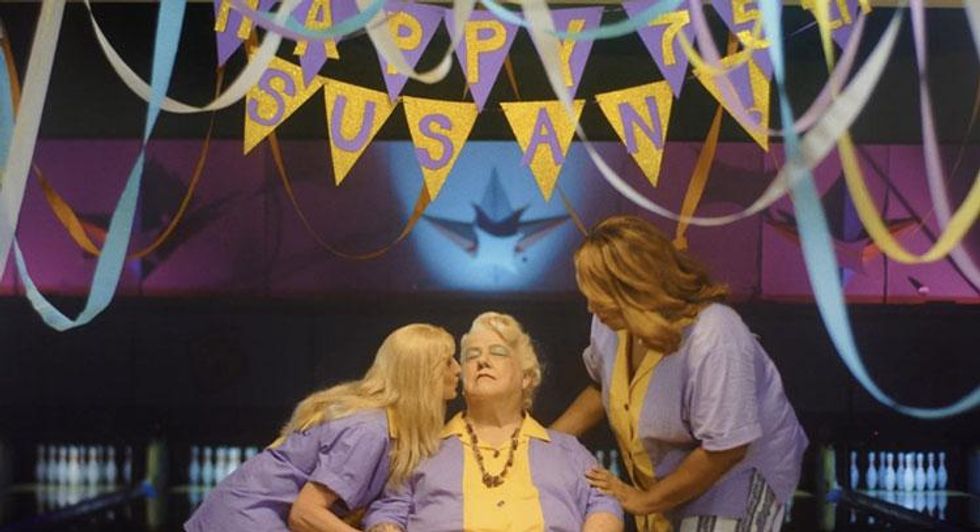
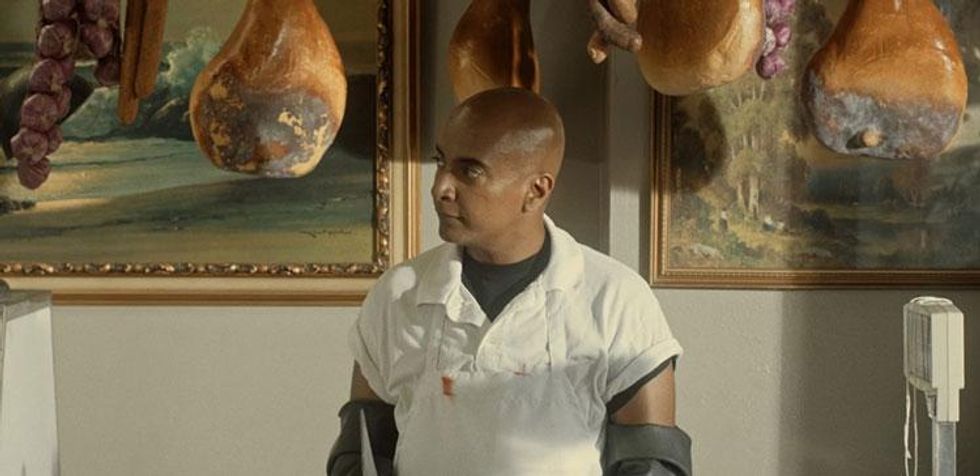
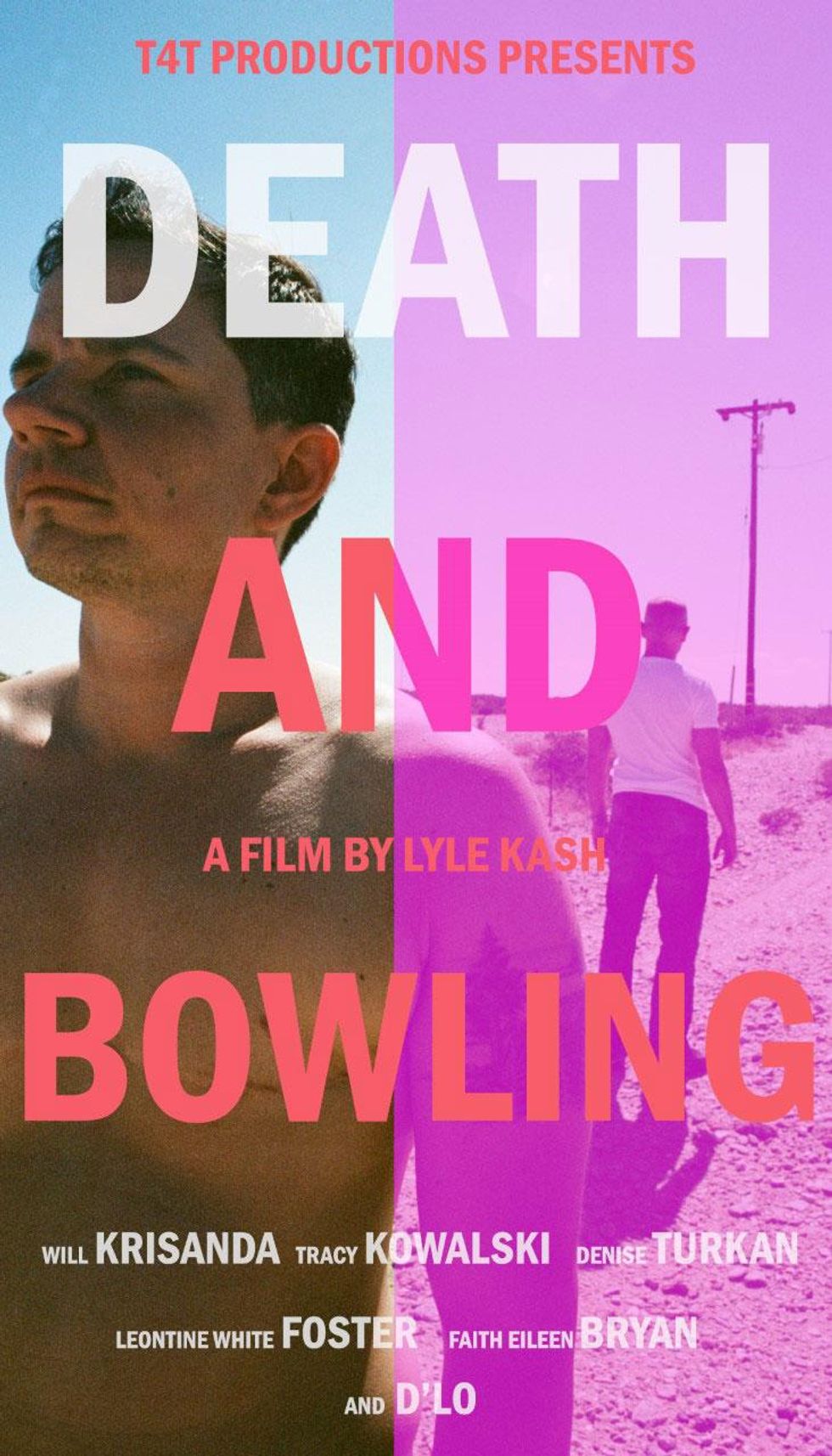


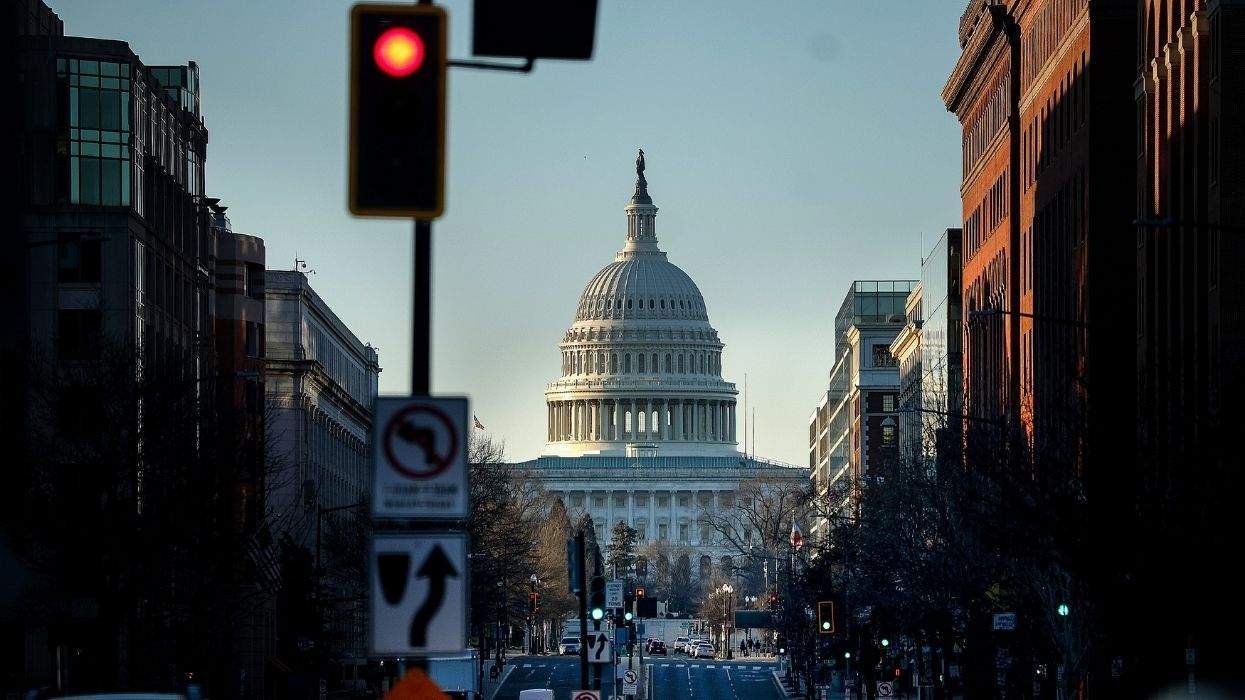


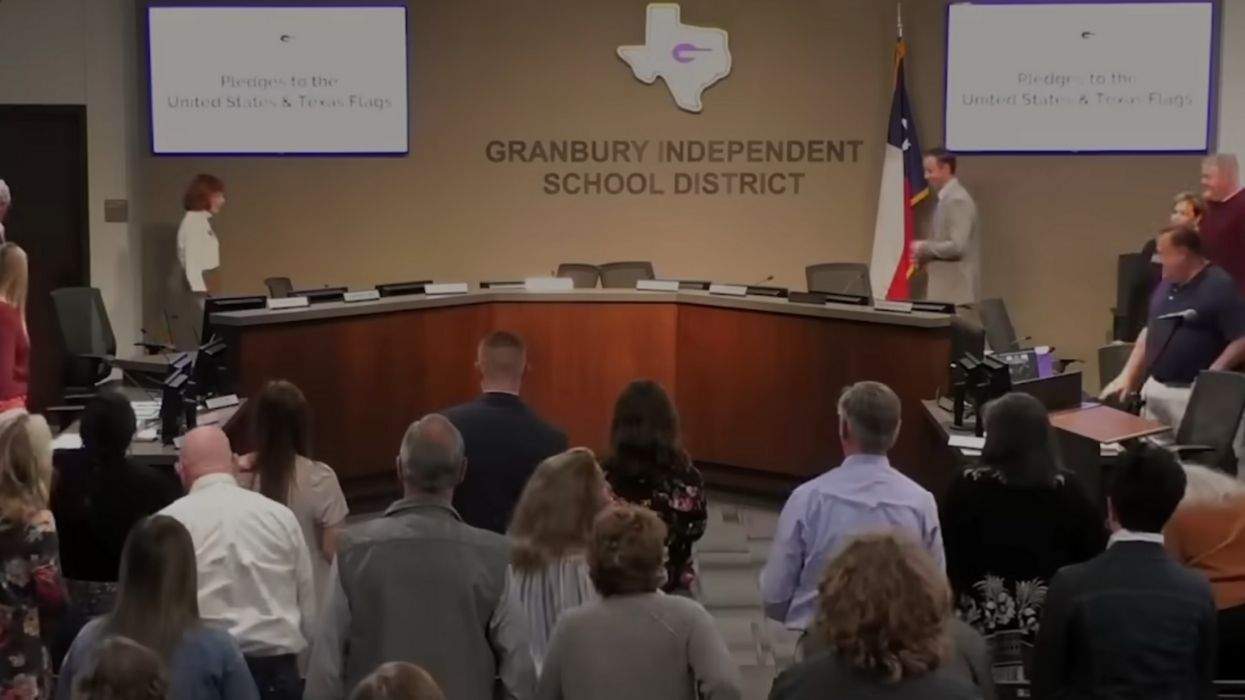

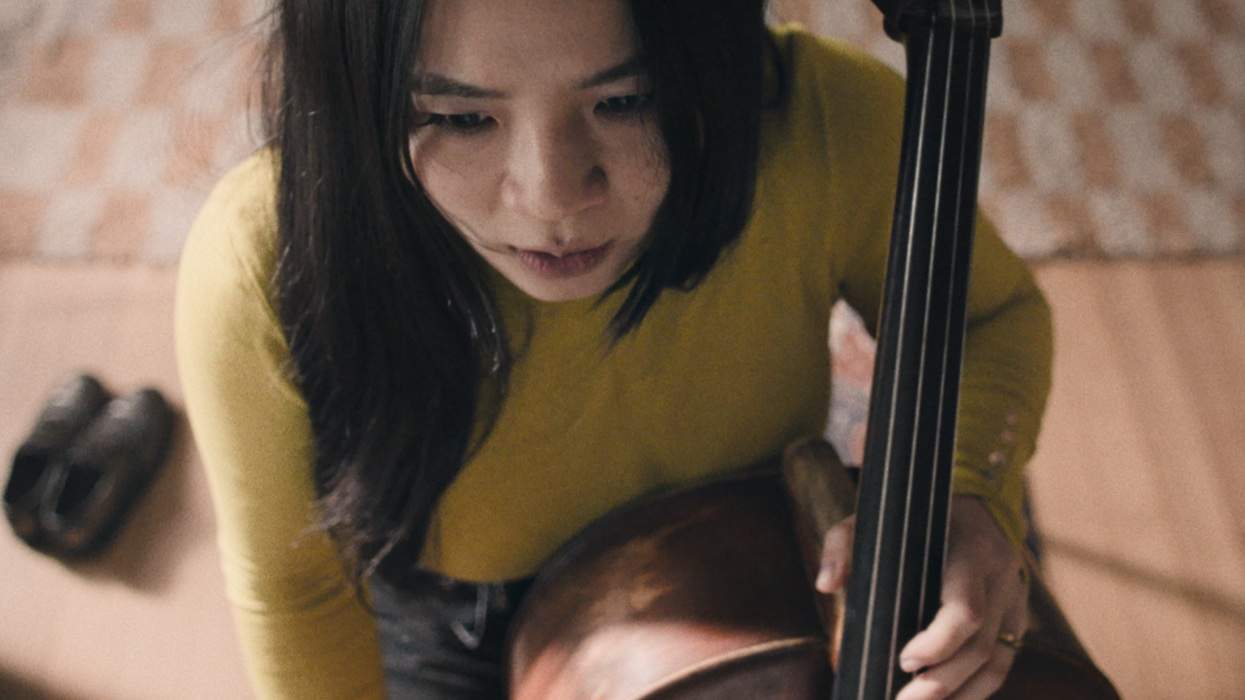






Charlie Kirk DID say stoning gay people was the 'perfect law' — and these other heinous quotes
These are some of his worst comments about LGBTQ+ people made by Charlie Kirk.